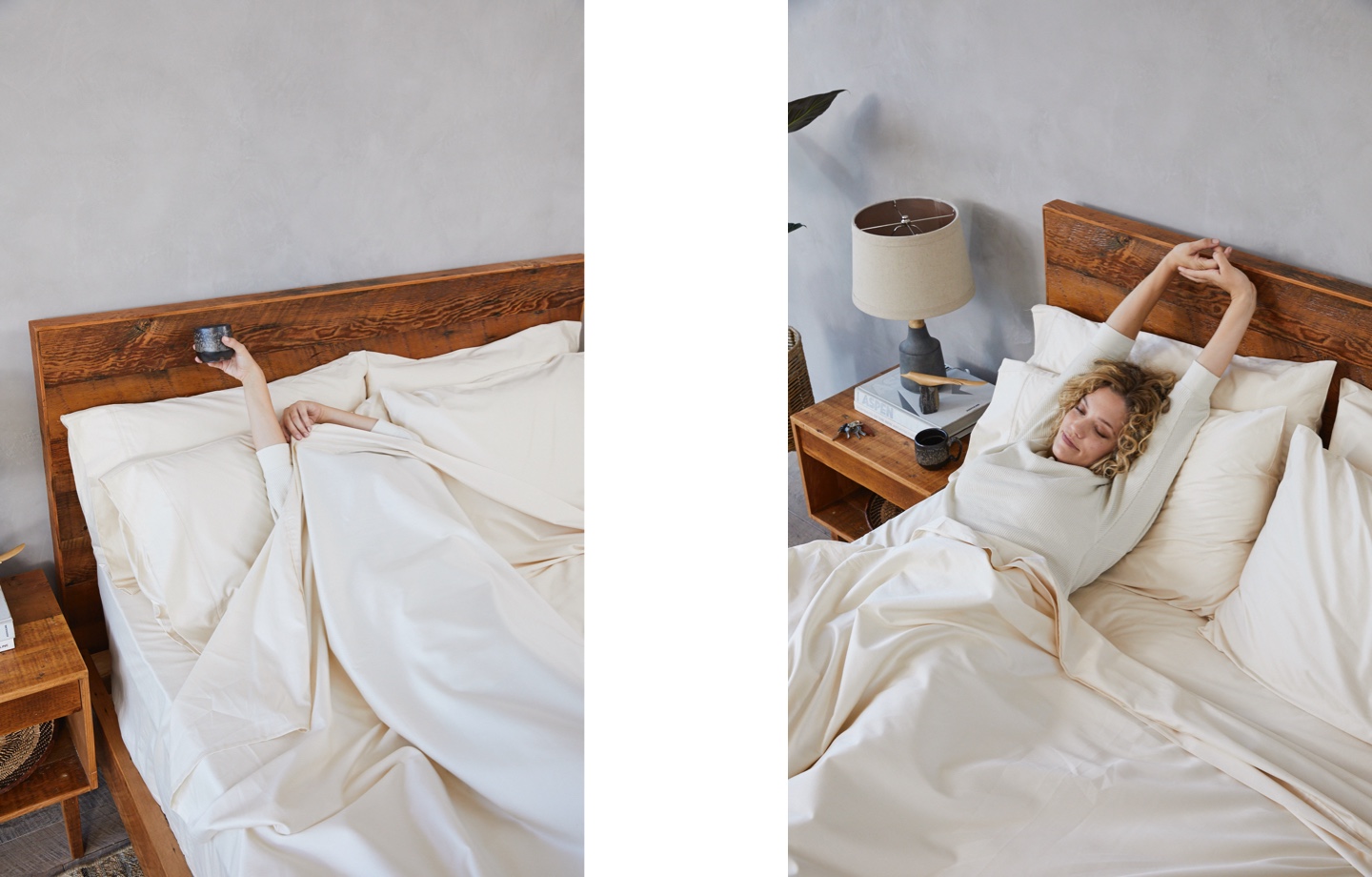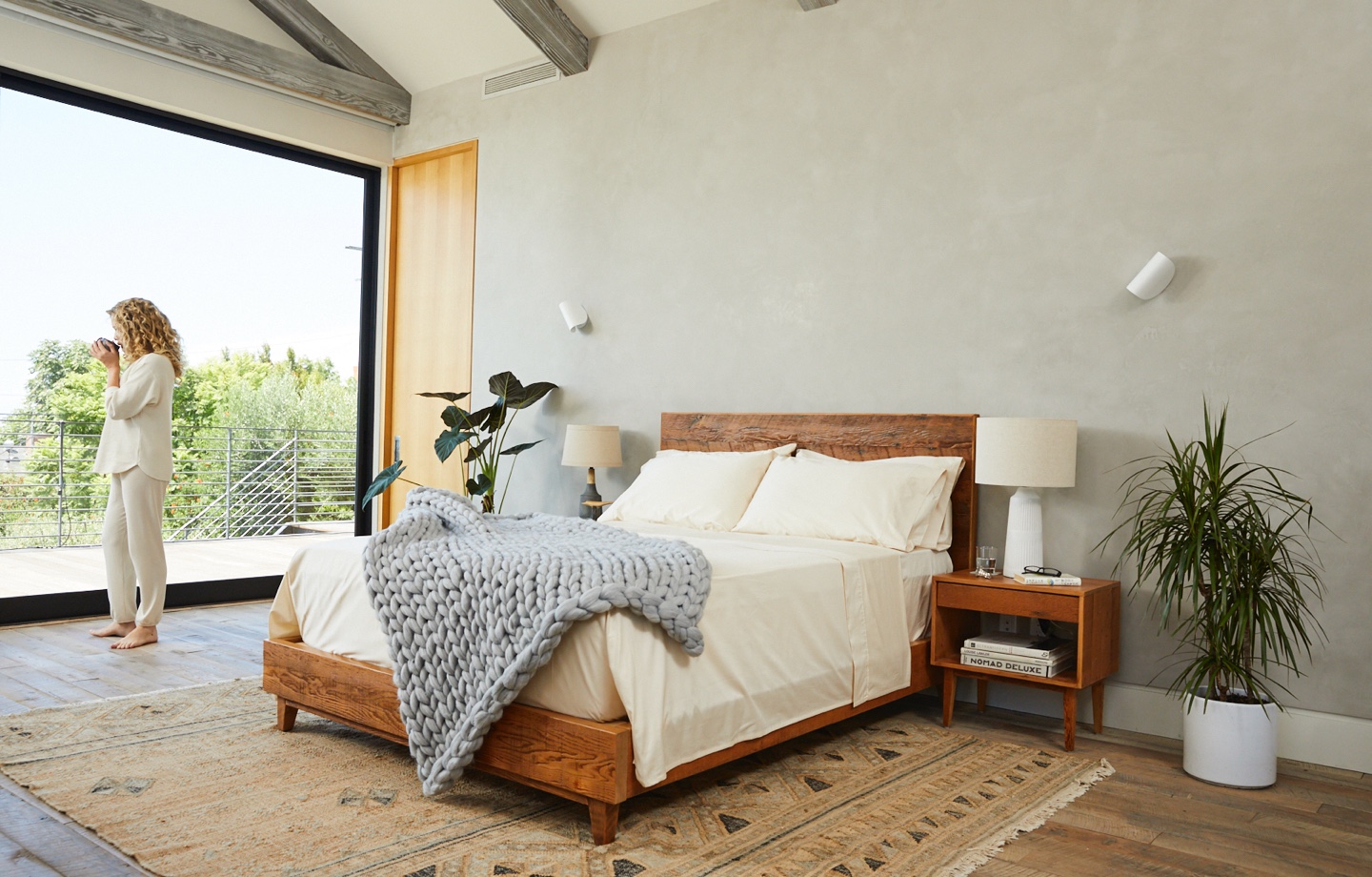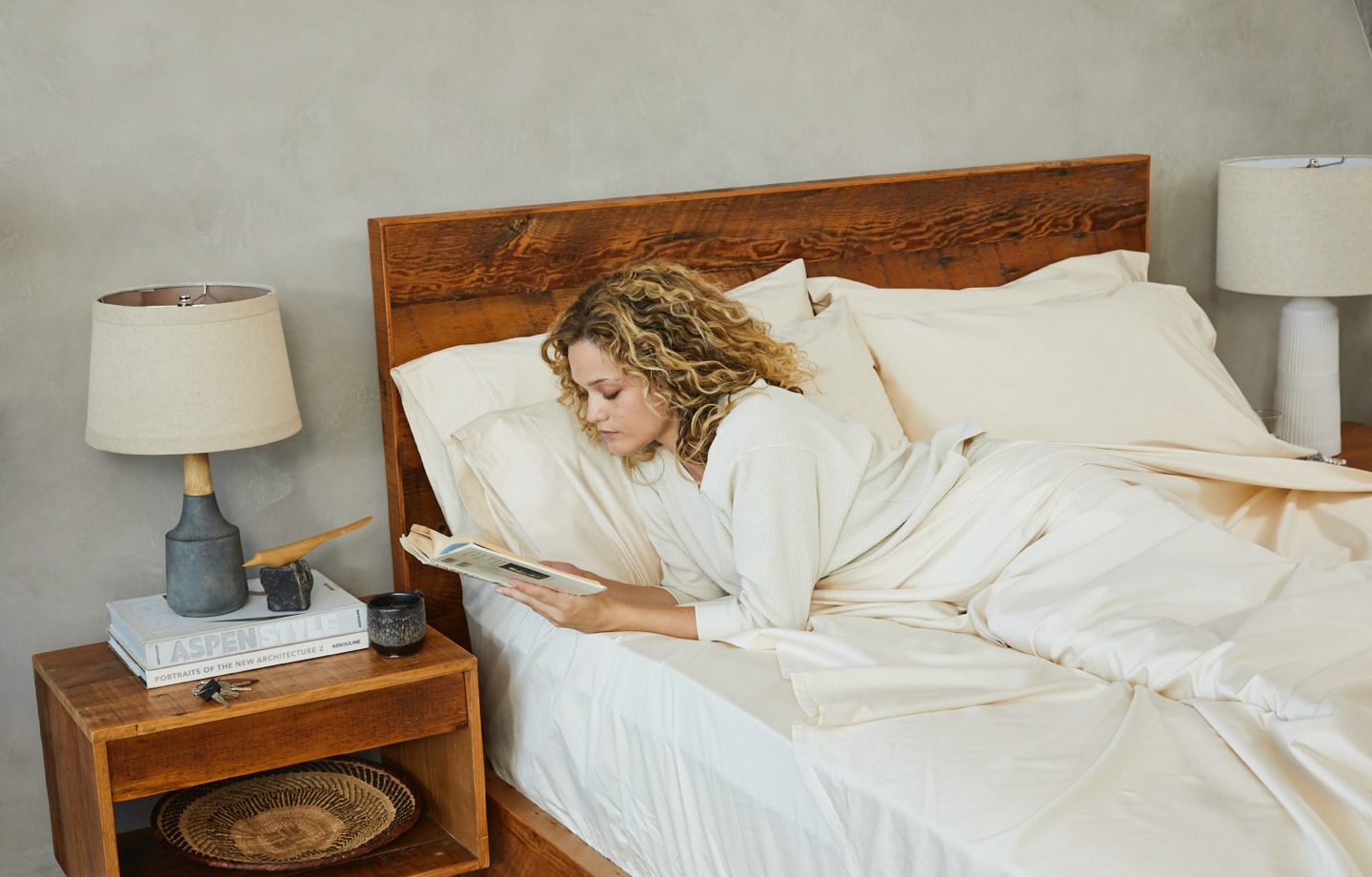In honor of World Sleep Day, we spoke to sleep coach Kelly Murray about the most common misconceptions about sleep.
Sleep is essential to our physical, mental, and emotional well-being. It’s also one of the behaviors we’re most likely to let fall to the bottom of our priority list. But lack of restful slumber can have a huge impact on quality of life.
When we’re asleep, our immune system releases proteins that are critical for fighting infection and inflammation. So without enough sleep, we’re more likely to get sick when exposed to a virus and it takes our bodies longer to recover.
A solid night of zzz’s help keep our brains in peak condition, too. Sleep allows our brain to take the information accumulated during the day and organize, store, and discard it as needed. This enables our minds to clear out junk and make space for everyday tasks. For example, a study conducted by the Sleep Neuroscience and Cognition Laboratory at Baylor University showed that students who slept eight hours a week on average performed better on their finals than students who sacrificed sleep to study.
Sleep also plays a role in emotional health. When we’re sleep deprived, the brain — specifically the area that processes emotions — hasn’t fully rested. The result is impaired functionality, which can lead to mood swings, irritability, a quick temper, and other unpleasant emotions.
But whether or not you struggle with getting quality shuteye, there are lots of misconceptions about sleep. In honor of World Sleep Day, I’m debunking 7 sleep myths.
Read more: What Our Team Learned About Sleep This Year
You wouldn’t try to drive your car without gas, so why would you expect your brain and body to function without enough sleep? Sleep deprivation is common — approximately one-third of American adults will suffer from it at some point — but that doesn’t mean it’s normal.
When we experience lack of sleep, it’s often caused by voluntary choices that reduce the amount of time we have to sleep, like work, TV, or scrolling on your phone. But without enough sleep, individuals can experience reduced attention span, a decrease in memory, brain fog, low energy, and a propensity for risky behavior.
It’s also important to note that insomnia and sleep deprivation are different. Insomnia is the inability to sleep even when you have the time for a good night’s sleep. Sleep deprivation, on the other hand, is caused by a lack of time to sleep.

Read more: How Sleep Improves Heart Health
A glass of wine can help you fall asleep quickly, but you shouldn’t indulge right before bed. Alcohol increases adenosine production in the brain. This chemical connects neurons in our brains and makes us sleepy. An adult beverage rapidly increases adenosine levels, but it also causes them to fall at the same rate, lowering adenosine levels throughout the night. As a result, you may experience fragmented sleep, more frequent wakeups, and an earlier wake up, decreasing our overall time asleep.
Drinking close to bedtime also prevents you from entering REM sleep. REM is essential for mental clarity. That’s when our body restores its energy, releases hormones, repairs muscles, and our brain processes emotions and inputs from the day.
Here’s how to still enjoy a drink without compromising your sleep.
- Keep your alcohol consumption to one or two times per week.
- Drink earlier in the evening — think happy hour, rather than nightcap.
- Give yourself one hour per drink to process alcohol. If you have two drinks, stop drinking two hours before bed (or earlier!), etc.
Read more: How Alcohol Affects Sleep
You’ve likely heard that it’s not a good idea to exercise within three hours of bedtime. This advice makes sense. Exercise increases body temperature and heart rate, both of which need to decrease in order for you to fall asleep.
However, new research shows that exercising right before bed doesn’t greatly affect sleep. Some studies show working out can actually help you fall asleep more quickly. That said, I would still advise against intense exercise in the 90 minutes before you go to bed.
Our subconscious connects certain environments with specific feelings, thoughts, and behaviors. So you often struggle with falling and/or staying asleep, you may have come to associate your bed — entirely subconsciously! — with anxiety or other unpleasant emotions.
Instead of staying in bed counting sheep, here’s how to drift off more easily.
- Reserve your bed (and if you can, your bedroom) for sleep and sex to prevent your mind from identifying your bed with activities that stimulate the brain — like worrying.
- Only get in bed when you’re sleepy, which is different from feeling tired. “Tired” means physical and/or mental exhaustion. “Sleepy” feels more like heavy eyelids and like you’re about to fall asleep. Waiting to hop into bed until you’re sleepy allows your brain to associate being in bed with dozing off.
- If you’ve been lying in bed for fifteen minutes or so (don’t watch the clock — go by sense), and still feel awake, or begin to stress about not sleeping, leave your bed. Go to another room and do a relaxing activity like reading, meditation, or listening to a podcast. Once you feel sleepy, return to bed. If after what feels like fifteen minutes you still haven’t fallen asleep, repeat these steps until you can.

Believe it or not, this is false! The idea that we need at least eight hours of sleep per night comes from research conducted during a time when most people did physical labor. Now that the majority of individuals have office jobs, our bodies require less sleep.
Research actually shows that the ideal amount of sleep for adults ages 18 to 60 is, on average, seven hours. After seven hours, the benefits of sleep remain roughly the same, and the American Academy of Sleep Medicine and Sleep Research Society refers to this as the “magic number” for optimal health.
Individuals who sleep five hours per night also tend to have longer lifespans than those who sleep nine hours. People who sleep more than nine hours per night have been found to have more calcium buildup in their heart arteries and less-flexible leg arteries. What’s more, those who sleep 10 or more hours are usually less healthy than those who sleep five hours per night, largely because sleeping for longer amounts of time can be indicative of underlying health issues.
Read more: How Climate Change Impacts Sleep
We spend hours a day interacting with screens, which hinders sleep. Digital screens emit “blue light,” that tells the brain it’s daytime. As a result, the brain produces cortisol, a hormone that keeps us alert and awake, rather than melatonin that makes us sleepy. I recommend turning devices off at least an hour before bed.
Read more: The Best Acupressure Points For Better Sleep
Lots of people frequently remember their dreams — women are actually more likely to do so than men. However, remembering your nighttime journeys can be a sign of interrupted sleep. In fact, the more you wake during the night, the more likely you are to remember your dreams. If you wake up in the middle of the night for two minutes or more, your brain can even encode your dream into your long-term memory.

Read more: The Science of Dreaming
Have feedback on our story? Email [email protected] to let us know what you think!

Shop Pillows
The Essential Organic Pillow Collection
Gentle, breathable, non-toxic support.







